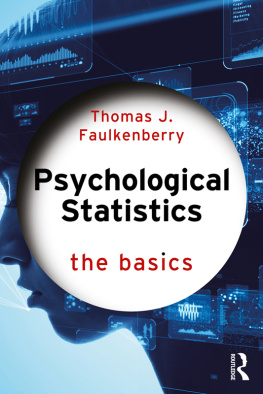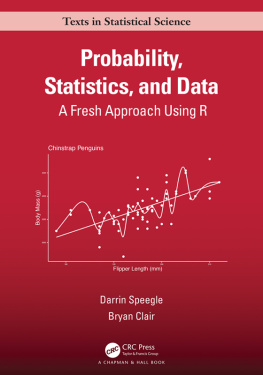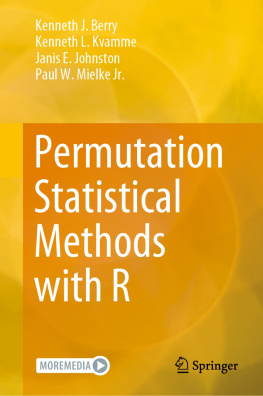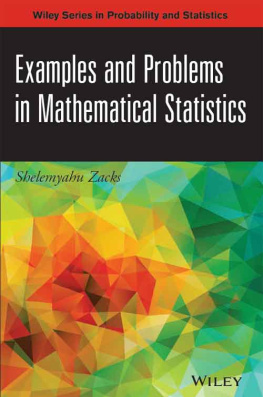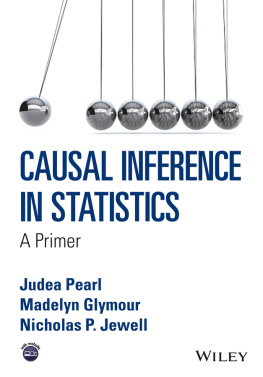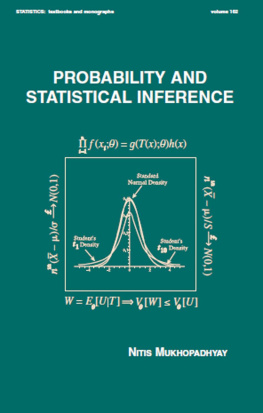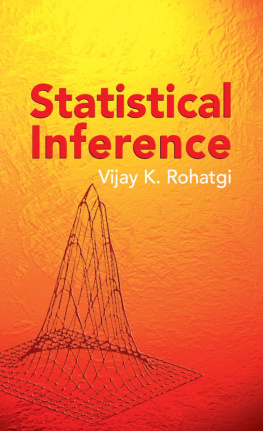Statistical Inference as Severe Testing
How to Get Beyond the Statistics Wars
Mounting failures of replication in the social and biological sciences give a new urgency to critically appraising proposed reforms. This book pulls back the cover on disagreements between experts charged with restoring integrity to science. It denies two pervasive views of the role of probability in inference: to assign degrees of belief, and to control error rates in a long run. If statistical consumers are unaware of assumptions behind rival evidence reforms, they can t scrutinize the consequences that affect them (in personalized medicine, psychology, and so on). The book sets sail with a simple tool: If little has been done to rule out flaws in inferring a claim, then it has not passed a severe test. Many methods advocated by data experts do not stand up to severe scrutiny, and are even in tension with successful strategies for blocking or accounting for cherry picking and selective reporting. Through a series of excursions, tours, and exhibits, the philosophy and history of inductive inference come alive, while philosophical tools are put to work to solve problems about science and pseudoscience, induction and falsification.
Deborah G. Mayo is Professor Emerita in the Department of Philosophy at Virginia Tech and is a visiting professor at the London School of Economics and Political Science, Centre for the Philosophy of Natural and Social Science. She is the author of Error and the Growth of Experimental Knowledge (1996), which won the 1998 Lakatos Prize awarded to the most outstanding contribution to the philosophy of science during the previous six years. She co-edited Error and Inference: Recent Exchanges on Experimental Reasoning, Reliability, and the Objectivity and Rationality of Science (2010, Cambridge University Press) with Aris Spanos, and has published widely in the philosophy of science, statistics, and experimental inference.
In this lively, witty, and intellectually engaging book, Deborah Mayo returns to first principles to make sense of statistics. She takes us beyond statistical formalism and recipes, and asks us to think philosophically about the enterprise of statistical inference itself. Her contribution will be a welcomed addition to statistical learning. Mayo s timely book will shrink enlarged posteriors and overinflated significance, by focusing on whether our inferences have been severely tested, which is where we should be focused.
Nathan A. Schachtman, Lecturer in Law, Columbia Law School
Whether or not you agree with her basic stance on statistical inference, if you are interested in the subject and all scientists ought to be Deborah Mayo s writings are a must. Her views on inference are all the more valuable for being contrary to much current consensus. Her latest book will delight many and infuriate others but force all who are serious about these issues to think. Her capacity to jolt the complacent is second to none.
Stephen Senn, author of Dicing with Death
Deborah Mayo s insights into the philosophical dimensions of these problems are unsurpassed in their originality, their importance, and the breadth of understanding on which they are based. Here she combines perspectives from philosophy of science and the foundations of statistics to eliminate mirages produced by misunderstandings both philosophical and statistical, while putting into focus the ways in which her error-statistical approach is relevant to current problems of scientific inquiry in various disciplines.
Kent Staley, Saint Louis University
This book by Deborah Mayo is a timely examination of the use of statistics in science. Her severity requirement demands that the scientist provide a sharp question and related data. Absent that, the observer should withhold judgment or outright reject. It is time to get tough. Funding agencies should take note.
S. Stanley Young, Ph.D., FASA FAAAS
Statistical Inference as Severe Testing
How to Get Beyond the Statistics Wars
Deborah G. Mayo
Virginia Tech

University Printing House, Cambridge CB2 8BS, United Kingdom
One Liberty Plaza, 20th Floor, New York, NY 10006, USA
477 Williamstown Road, Port Melbourne, VIC 3207, Australia
314 321, 3rd Floor, Plot 3, Splendor Forum, Jasola District Centre, New Delhi 110025, India
79 Anson Road, #06 04/06, Singapore 079906
Cambridge University Press is part of the University of Cambridge.
It furthers the University s mission by disseminating knowledge in the pursuit of education, learning, and research at the highest international levels of excellence.
www.cambridge.org
Information on this title: www.cambridge.org/9781107054134
DOI: 10.1017/9781107286184
Deborah G. Mayo 2018
This publication is in copyright. Subject to statutory exception and to the provisions of relevant collective licensing agreements, no reproduction of any part may take place without the written permission of Cambridge University Press.
First published 2018
Printed in the United States of America by Sheridan Books, Inc.
A catalog record for this publication is available from the British Library.
Library of Congress Cataloging-in-Publication Data
Names: Mayo, Deborah G., author.
Title: Statistical inference as severe testing : how to get beyond the statistics wars / Deborah G. Mayo (Virginia Tech).
Description: Cambridge : Cambridge University Press, 2018. | Includes bibliographical references and index.
Identifiers: LCCN 2018014718 | ISBN 9781107054134 (alk. paper)
Subjects: LCSH: Mathematical statistics. | Inference. | Error analysis (Mathematics) | Fallacies (Logic) | Deviation (Mathematics)
Classification: LCC QA276 .M3755 2018 | DDC 519.5/4 dc23
LC record available at https://lccn.loc.gov/2018014718
ISBN 978-1-107-05413-4 Hardback
ISBN 978-1-107-66464-7 Paperback
Additional resources for this publication at www.cambridge.org/mayo
Cambridge University Press has no responsibility for the persistence or accuracy of URLs for external or third-party internet websites referred to in this publication and does not guarantee that any content on such websites is, or will remain, accurate or appropriate.
To George W. Chatfield
for his magnificent support
Itinerary
Preface
The Statistics Wars
Today s statistics wars are fascinating: They are at once ancient and up to the minute. They reflect disagreements on one of the deepest, oldest, philosophical questions: How do humans learn about the world despite threats of error due to incomplete and variable data? At the same time, they are the engine behind current controversies surrounding high-profile failures of replication in the social and biological sciences. How should the integrity of science be restored? Experts do not agree. This book pulls back the curtain on why.
Methods of statistical inference become relevant primarily when effects are neither totally swamped by noise, nor so clear cut that formal assessment of errors is relatively unimportant. Should probability enter to capture degrees of belief about claims? To measure variability? Or to ensure we won t reach mistaken interpretations of data too often in the long run of experience? Modern statistical methods grew out of attempts to systematize doing all of these. The field has been marked by disagreements between competing tribes of frequentists and Bayesians that have been so contentious likened in some quarters to religious and political debates that everyone wants to believe we are long past them. We now enjoy unifications and reconciliations between rival schools, it will be said, and practitioners are eclectic, prepared to use whatever method works. The truth is, long-standing battles still simmer below the surface in questions about scientific trustworthiness and the relationships between Big Data-driven models and theory. The reconciliations and unifications have been revealed to have serious problems, and there s little agreement on which to use or how to interpret them. As for eclecticism, it s often not clear what is even meant by works. The presumption that all we need is an agreement on numbers never mind if they re measuring different things leads to pandemonium. Let s brush the dust off the pivotal debates, walk into the museums where we can see and hear such founders as Fisher, Neyman, Pearson, Savage, and many others. This is to simultaneously zero in on the arguments between metaresearchers those doing research on research charged with statistical reforms.


